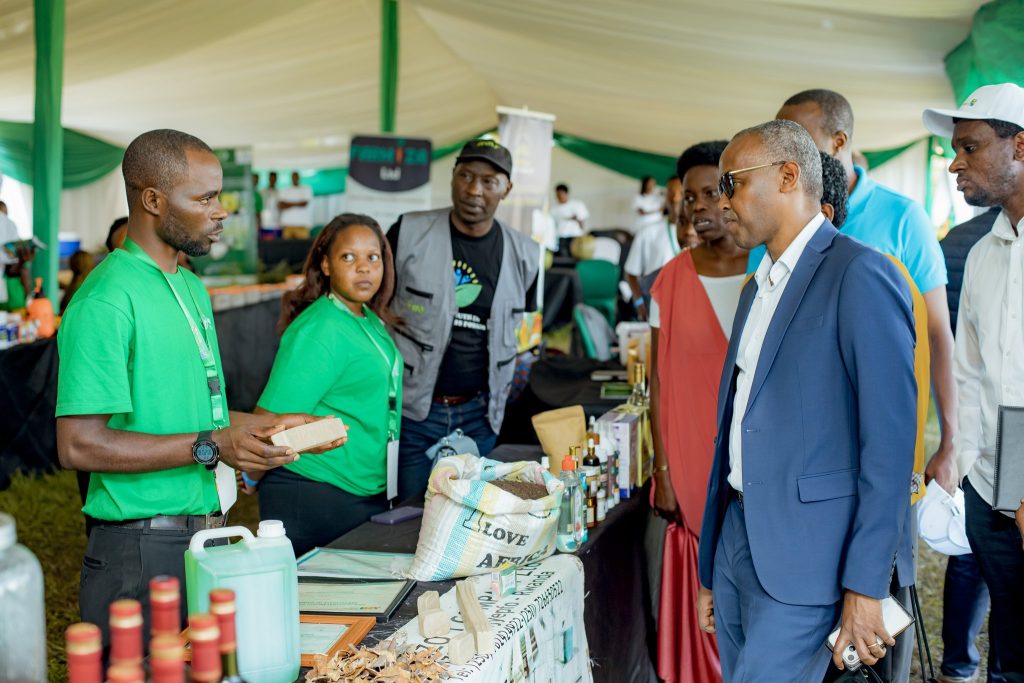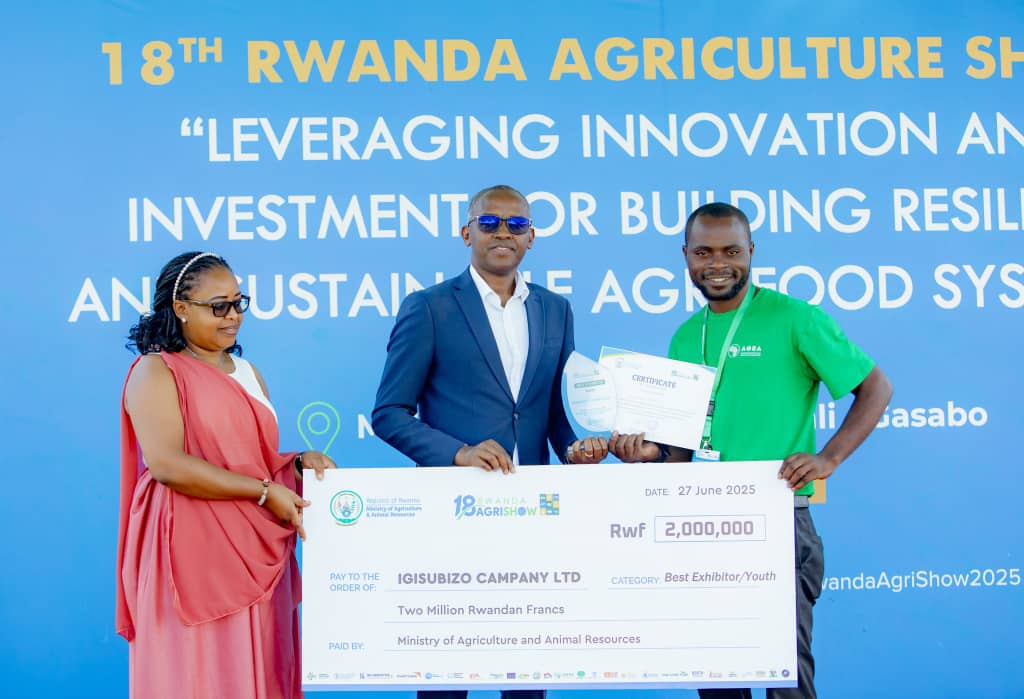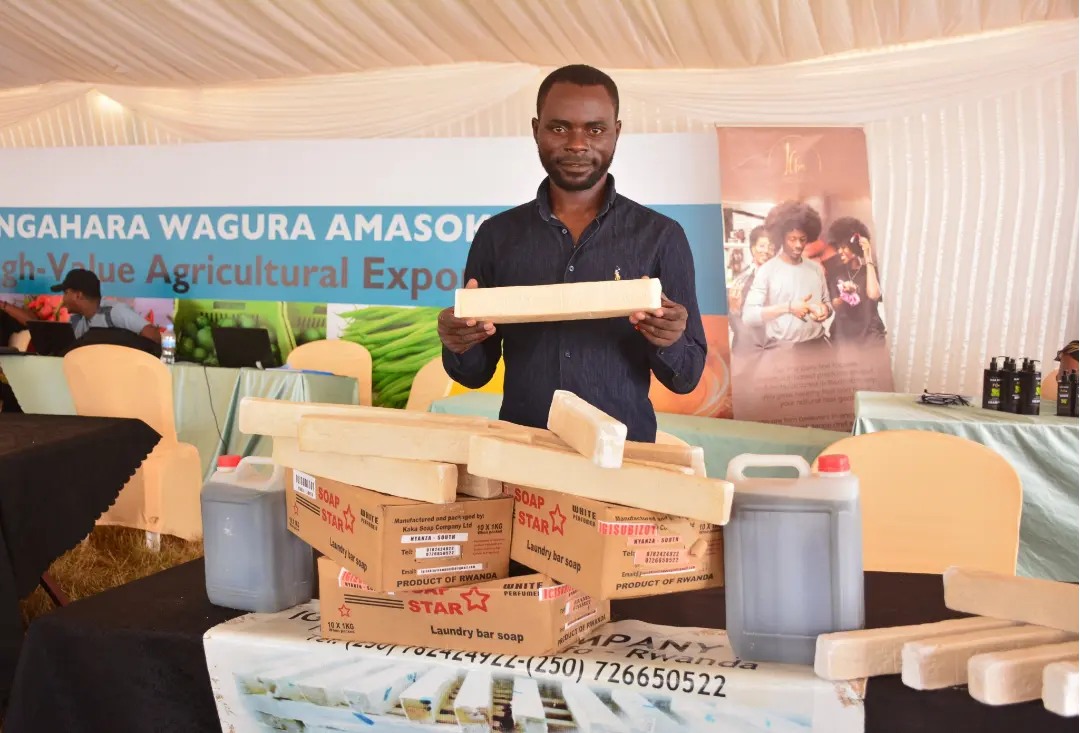In Mukingo Sector, Nyanza District, a small but innovative factory called Igisubizo 1 Company Ltd is making a big impact. Founded by Sibobugingo Evariste, the company is turning cassava peels, a common agricultural waste, into valuable products like soap-making oils and organic fertilizers.
This initiative is a powerful example of how local entrepreneurship can tackle environmental challenges while creating economic opportunities for the community.
Sibobugingo’s journey began in 2019 when he noticed a significant amount of cassava peels being discarded by local farmers. Cassava is a staple crop in Rwanda, with production increasing by 5% in Season A of 2025, reaching over 542,000 tonnes, as reported by allAfrica.com.
However, processing it creates substantial waste, making up about 20% of the tubers. If not managed properly, these peels can cause environmental problems. “We saw an untapped opportunity. We sought a solution and we found one,” he shared in an interview with Umunota.
His vision was to transform this overlooked waste into something valuable, aligning with the principles of a circular economy where waste is seen as a resource. Rwanda is increasingly focusing on circular economy initiatives in its food systems to minimize waste and maximize resource use, a goal highlighted by WRI Africa’s “Circular Food Systems for Rwanda” program.

The project officially began to take shape in 2021 when Igisubizo 1 Company Ltd was registered. Since then, the company has combined traditional knowledge with modern technology, using machines for soap production and fertilizer blending, along with precise tools to ensure product quality.
Igisubizo 1 Company Ltd has had a positive ripple effect on the local community and the environment. The factory provides permanent jobs to eight young people and women, along with twelve part-time workers.
Beyond direct employment, the company supports more than 200 farmers by offering affordable organic fertilizers. They also educate farmers on how to utilize agricultural waste instead of discarding it, promoting sustainable farming practices.
This approach helps reduce pollution from agricultural waste and provides farmers with accessible, eco-friendly inputs, contributing to improved soil health and potentially higher crop yields. This aligns with broader efforts by organizations like the Rwanda Agriculture and Animal Resources Development Board (RAB) and the International Institute of Tropical Agriculture (IITA) to train farmers on processing cassava peels into animal feed, highlighting the potential for waste valorization, according to RAB.
Sibobugingo acknowledged the challenges they faced in the early stages, including limited startup capital, insufficient equipment, and difficulties accessing a reliable market.
“We faced many hurdles, low funding, inadequate tools, and a market we couldn’t fully satisfy. We gradually addressed them through training and partnerships with financial institutions,” he explained.
These challenges are common for Small and Medium-sized Enterprises (SMEs) in Rwanda, where access to finance and market linkages can be significant barriers to growth, as noted in reports by UNDP and MINICOM.
Despite these initial difficulties, Sibobugingo remains driven by a clear vision. He expressed the need for greater support to access larger, even international, markets.
He remains driven by a clear vision and purpose, stating, “We are on a journey toward that goal, guided by a strong mission and determination.” He hopes that in the next five to ten years, the company will grow into a large-scale plant with the capacity to enter global markets.
The company now has a permanent working site and a product transportation system, crediting the Rwanda Youth in Agribusiness Forum (RYAF) for playing a key role in supporting the growth of youth-led agricultural initiatives.
RYAF is a national platform dedicated to changing youth perception of agriculture and helping them seize investment opportunities through skills development and advocacy, according to its website and the Ministry of Agriculture (Minagri).
Sibobugingo believes that focusing on broader social benefits rather than personal gain has been crucial to his journey. He encourages young people to pursue education, seek knowledge, work with others, and engage in initiatives that benefit the community, even if they start with limited resources.





